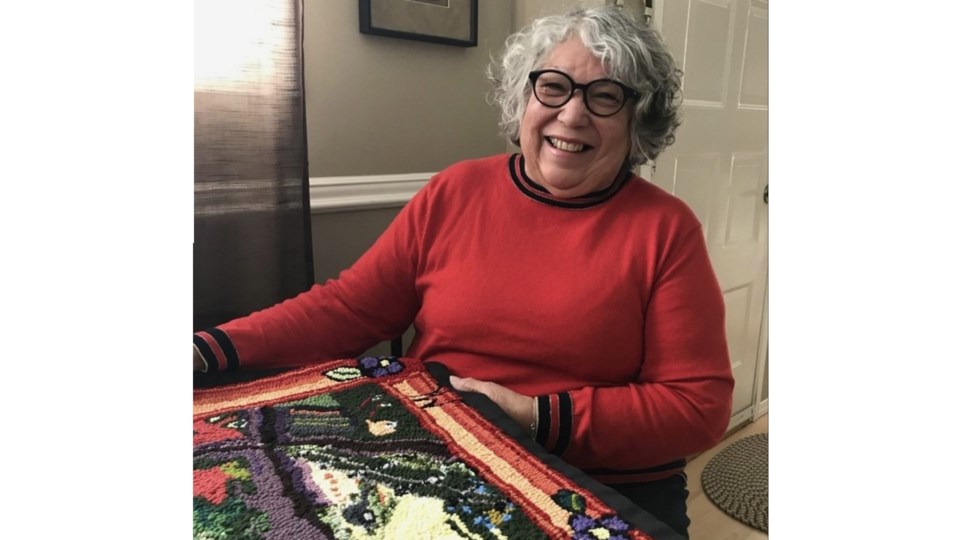PORCUPINE PLAIN – Margaret Harrison has been an Indigenous leader for over 60 years of her life. Now at the age of 81 years old, she continues to ensure that she teaches Métis culture and Michif language to younger generations to come after her.
The Métis Elder has always been a helper and a person that cares for the people around her. Elder Harrison was born at Katepwa Lake in the Qu’Appelle Valley and is a member of the extended Racette, Pelletier and Cardinal families. She was one of five siblings growing up. She credits her mother Adeline for being a strong influence in her life growing up. Her mother was an early widow and Margaret lost her father when she was just 10 years old. Harrison has always been a caregiver, even at that young age, she cared for her father before he passed and learned from her mother what strength is.
Elder Harrison is an accomplished Métis textile artist. She practices Métis-style floral embroidery and is now one of few remaining Métis women to continue to make hooked rag rugs. Her mother taught her and her sisters Florence, Louise and Agnes to sew rug and embroider. Her family was recognized for their sewing skills and making hooked rag rugs throughout the Qu’Appelle Region. Margaret’s works has been featured in two documentaries produced by the Gabriel Dumont Institute and her work has been showcased and displayed at Batoche and Motherwell National Historic Sites. Most recently her works have been featured as part of Remai Art Gallery’s “Storied Objects: Metis Arts in Relation” exhibit in Saskatoon.
In recent years, Elder Harrison has become a member of the Elders’ Branch in Métis Nation-Saskatchewan’s Eastern Region II and is now spearheading a mobile library that brings Indigenous authors and illustrator books and literature to all over the Northeast region. Elder Harrison said she enjoys hand delivering these books as it brings a smile to their faces and Métis culture to their homes.
Margaret was a mother of five and is very proud of her children. She credits her late husband Derril for the presence and example he had set for his children. She feels very fortunate to have had a strong supportive male in her life and feels that it’s very important for both the women and man to thrive and be supportive of each other. She enjoys her family and is proud of the professionals they have become in their fields of study.
When asked what she hopes for women she said that education is important and most importantly their language.
“Our language needs to be taught and not forgotten. We cannot forget the past but we also need to learn and look towards our future. We gain strength in our nation.”




